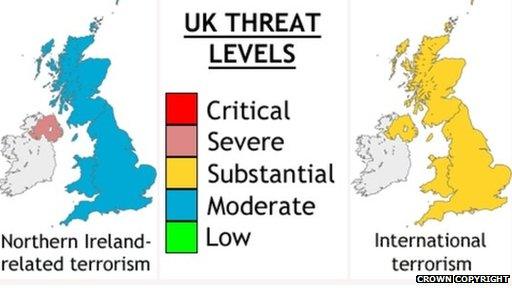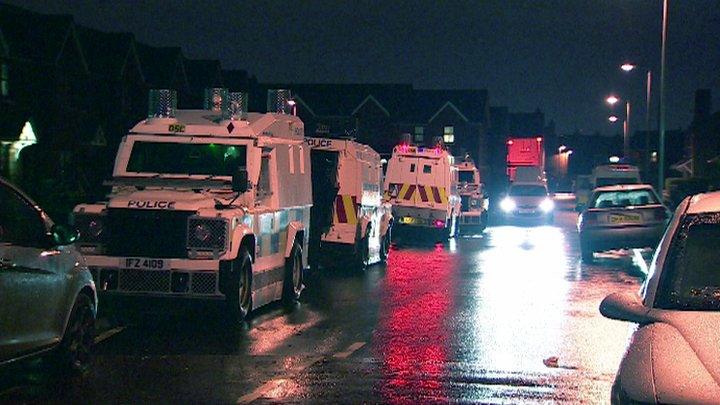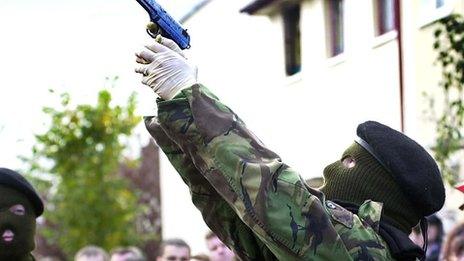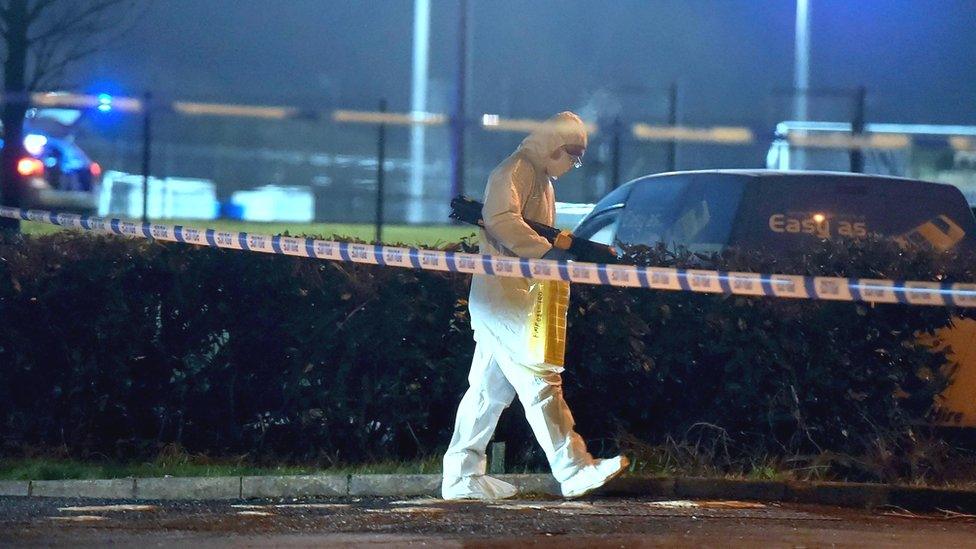MI5 downgrades dissident Irish republican GB threat
- Published
The threat level from dissident republicans to Great Britain has been downgraded from "substantial" to "moderate", the Home Office has said.
The decrease shows the authorities regard an attack on London and other British cities from such groups as possible, but not likely.
Previously it was deemed a strong possibility.
The threat level in Northern Ireland has not changed. It remains "severe" with an attack still highly likely.
Home Secretary Theresa May said that the threat level to the UK from international terrorism remains at substantial, "which means that an attack is a strong possibility". The highest threat level is critical, two steps above the current warning.
"The threat level to Northern Ireland from Northern Ireland-related terrorism remains at severe, meaning that an attack is highly likely. Neither of these two levels has changed," she said.
"Despite the change which has been made today, there remains a real and serious threat against the United Kingdom from terrorism and I would ask the public to remain vigilant and to report any suspicious activity to the police."
In July, three different republican groups came together to try to form a "new IRA" - the Londonderry-based vigilante group Republican Action Against Drugs (RAAD), the Real IRA and a group of unaligned dissidents, most of whom are seasoned ex-members of the Provisional IRA.
Between them, the various dissident groups are believed to have, at most, 700 members. They use violence in their opposition to British involvement in Northern Ireland.
Since March 2009, they have killed two soldiers and two police officers and carried out a number of other attacks on the security forces.
So far this year dissident republicans have been behind 19 attacks.
Earlier this month, a horizontal mortar was discovered in north Belfast.
It is understood the device included the military explosive Semtex, and would have been capable of piercing the armour of a police vehicle.
Speaking in the House of Commons, Northern Ireland's Secretary of State Theresa Villiers said it was vital to "bear down on terrorism".
"In both Great Britain and Northern Ireland the government is focused on defeating terrorism and will use all means at our disposal to do that," she said.
The decision to lower the threat level was made by MI5, the Security Service.
On its website, external MI5 said: "The threat level for Northern Ireland-related terrorism is separate from that for international terrorism. It is also set separately for Northern Ireland and Great Britain."
It is understood that the decision was made after considering the balance between the aspiration of terror groups in Northern Ireland to mount an attack in Great Britain with their intent to do so.

MI5 map of British Isles indicating terror threat
- Published5 October 2012

- Published21 September 2012
.jpg)
- Published27 July 2012

- Published14 August 2023

- Published25 September 2010
